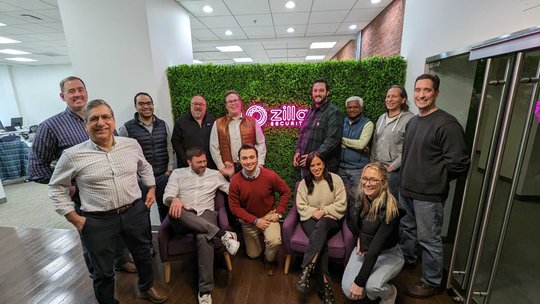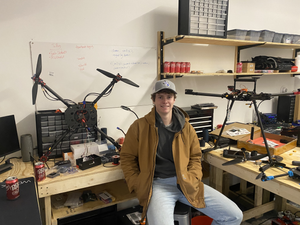
Deepak Taneja has been involved in the Boston cybersecurity industry for about 35 years. But in some ways, he’s just getting started.
Originally from India, Taneja moved to the U.S. for graduate school at the University of Florida. He went to Oregon for a job and then came to settle in Boston in the late 1980s.
In 1997, Taneja was part of the founding team of Netegrity and served as CTO and head of engineering. The company was acquired by Computer Associates in 2004. Then he founded Aveksa, a venture-backed company specializing in access governance technology. Aveksa was bought by RSA in 2013.
In 2019, Taneja co-founded his latest venture: Zilla Security. Taneja recently spoke with BostInno about his new startup, the latest trends in the security industry, the growth of artificial intelligence and more.
This interview has been lightly edited for length and clarity.
You’ve built a 35-year career in the Boston security industry. What keeps drawing you into new ventures in this space?
Security is a big, challenging problem. And it’s been getting worse and worse and worse. As organizations grow their use of technology, that growth outstrips their ability to secure that technology. And that’s sort of what we’ve been seeing over the last 20 years.
What people need more and more is automation. They don’t have the staff to deal with it all. They need automated tools. They need machine learning. They need artificial intelligence. So that’s what makes it such an attractive space.
After your startup Aveksa was acquired by RSA, you only stayed on at the new company for about a year as CTO. Why did you end up deciding to step away?
At large companies, you feel like a cog in the wheel, so to speak. And you just can’t have the impact you can have at a startup. RSA is a good company. There are lots of good large companies. But startups are more fun and you feel like you can actually make things happen.
Tell us about Zilla Security and what problems your new venture is trying to solve.
Zilla helps organizations manage who has access to what. Businesses of all sizes are using cloud platforms, like AWS, they’re using hundreds of SaaS applications, like Salesforce and Hubspot, and security and compliance teams are sort of struggling to monitor who has access to what. Where are the access-related vulnerabilities? Because they need to detect those vulnerabilities and they need to fix them. In fact, most data breaches today are rooted in these identity and access gaps. And that’s what Zilla addresses in sort of a holistic way across all the digital services that a company uses.
You mentioned AI is something security needs to embrace. Is Zilla using AI?
With most of these organizations that we will work with, you have to walk with them before you start running. So, you have to start solving their basic problems before you tell them you’re going to automate the whole thing. We’re going to use AI, but have we built that into our product yet? We haven’t. But we’re going to move the product in the direction of more and more self learning, more and more machine learning, more and more automated actions that are being taken by the Zilla product.
Zilla’s team has doubled over the last year to 43 employees. Amidst an environment of tech layoffs and worsening economic conditions, how have you found the process of growing your team?
For the most part, we tend to hire people who have been out of school for five years or more. Over the last few years, if you set aside the last six months, hiring here has been very difficult. Hiring through your network has been much easier than trying to go out there and just look for people in general because the demand has been so great. There’s just been so many startups.
I think things are starting to ease up a little bit now. I mean there’s a bit of a downturn and to some extent that is helpful from a hiring perspective. We are aggressively hiring right now. We’re looking for people. We’re looking to grow in 2023. But overall, in the Boston area, that’s been an issue. And it goes back to the fact that it is such a thriving startup community.
Sign up for The Beat, BostInno’s free daily innovation newsletter from BostInno reporter Hannah Green. See past examples here.








